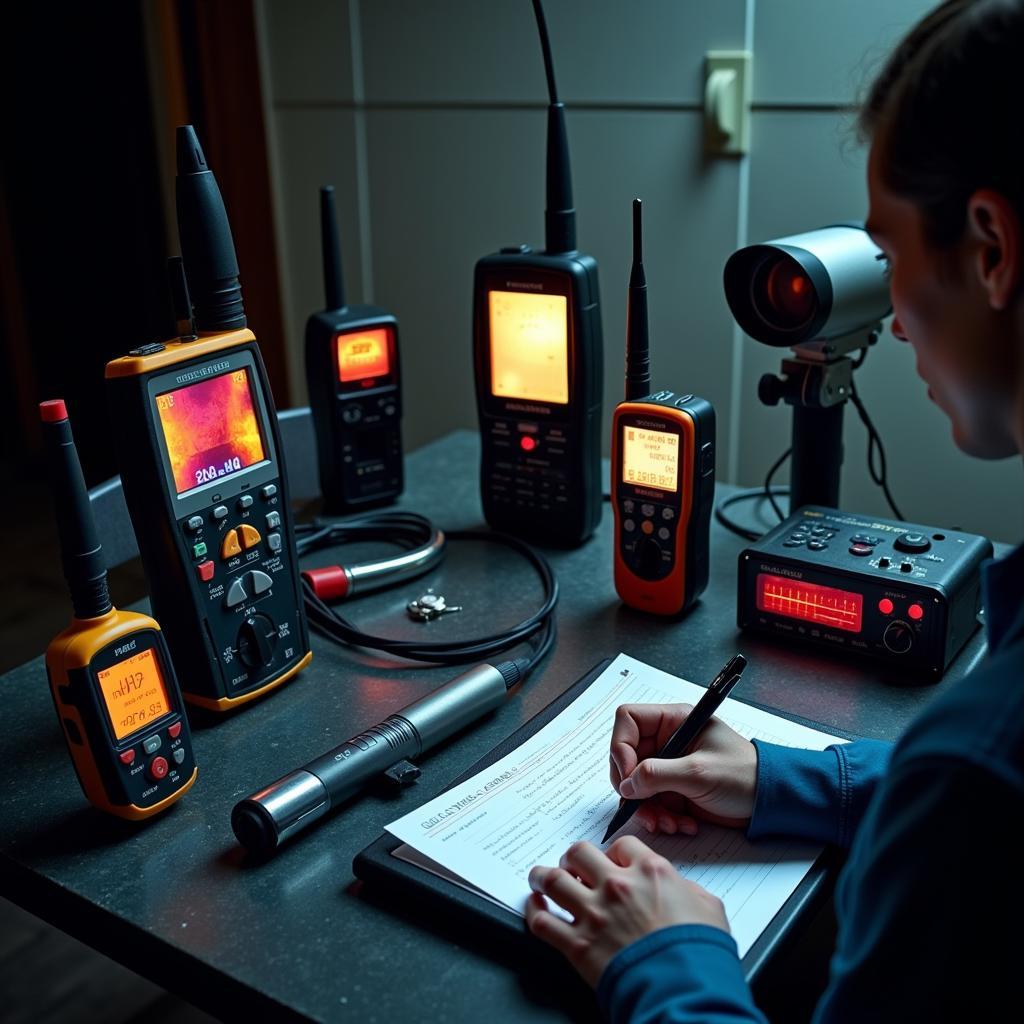Data Research Definition refers to the systematic process of collecting, analyzing, and interpreting data to answer research questions, test hypotheses, or discover new knowledge. It’s a crucial aspect of any research project, impacting everything from the initial planning stages to the final conclusions. See how data research shapes our understanding of the paranormal world, and how we, at Paranormal Research, utilize it.
Data plays a vital role in virtually every field, from scientific discoveries to business decisions. In paranormal research, research data definition takes on a unique significance. We deal with phenomena that often defy conventional explanation, making rigorous data collection and analysis even more critical. We strive to move beyond anecdotal evidence and establish a more empirical understanding of the unexplained. Whether investigating haunted locations or analyzing psychic abilities, data provides the foundation for our explorations. What exactly constitutes “data” in this context? It can range from electromagnetic field readings and audio recordings to eyewitness testimonies and historical documents.
The Importance of Data Definition Research
Data definition research is not merely about gathering information; it’s about defining what constitutes valid data within the specific context of your research. This involves carefully considering the research question, identifying the most relevant data sources, and establishing clear criteria for data collection and analysis. A well-defined data research process ensures that the collected data is reliable, valid, and ultimately, meaningful. For example, if we are investigating a reported haunting, we might collect temperature readings, EMF measurements, and audio recordings. However, it’s essential to define what constitutes a significant change in these readings to avoid misinterpreting normal fluctuations as paranormal activity.
Defining Data in Paranormal Investigations
One of the challenges in paranormal research is the subjective nature of many experiences. How do we quantify a feeling of dread or a fleeting glimpse of a shadow? This is where define anonymity in research becomes crucial in gathering credible data from individuals who may have experienced paranormal phenomena. Anonymity can encourage open and honest reporting, leading to richer and more reliable data sets.
 Paranormal Data Collection Equipment
Paranormal Data Collection Equipment
Types of Data in Paranormal Research
Data in paranormal research can be broadly categorized into qualitative and quantitative data. Quantitative data involves numerical measurements, such as EMF readings and temperature changes. Qualitative data, on the other hand, involves descriptive information, such as eyewitness accounts and historical records. Both types of data are valuable and can provide different perspectives on a paranormal phenomenon.
Qualitative Data: The Human Element
Qualitative data in paranormal research often comes from interviews with witnesses. These interviews can provide valuable insights into the subjective experiences of individuals who have encountered unexplained phenomena. It is essential to conduct these interviews in a way that encourages open and honest communication while maintaining objectivity.
 Conducting a Paranormal Research Interview
Conducting a Paranormal Research Interview
Quantitative Data: Measuring the Unmeasurable
While qualitative data provides the human perspective, quantitative data attempts to measure the physical aspects of paranormal phenomena. This can involve using specialized equipment to detect changes in electromagnetic fields, temperature, or other environmental factors.
The Role of Anonymity in Data Research
Anonymity definition in research is crucial, especially when dealing with sensitive topics like paranormal experiences. Guaranteeing anonymity allows witnesses to share their experiences without fear of judgment or ridicule, contributing to more comprehensive data collection.
“Protecting the identity of witnesses is paramount in paranormal research,” says Dr. Evelyn Reed, a leading psychologist specializing in anomalous experiences. “Anonymity fosters trust and encourages individuals to share potentially stigmatizing information, which is crucial for a complete understanding of these phenomena.”
Mercy Research: A Holistic Approach
Mercy research emphasizes a compassionate approach to data collection in fields like paranormal research, prioritizing the well-being of participants and acknowledging the sensitive nature of their experiences. This ethical consideration plays a significant role in ensuring the accuracy and reliability of gathered data.
 Data Analysis in Paranormal Research
Data Analysis in Paranormal Research
Conclusion
Data research definition encompasses a multifaceted process that is essential for understanding the paranormal. By carefully defining our data, employing rigorous collection methods, and utilizing both qualitative and quantitative approaches, we can gain deeper insights into the unexplained. Data research is not just about finding answers; it’s about asking the right questions and building a foundation for future exploration. Remember, a well-defined data research process is crucial for unlocking the mysteries of the paranormal world.
FAQ
- What is the difference between qualitative and quantitative data in paranormal research?
- How does anonymity impact the reliability of data in paranormal studies?
- What are some common tools used for collecting quantitative data in paranormal investigations?
- Why is it important to define data clearly in a research project?
- How can I contribute to paranormal research data collection?
- What are some ethical considerations when conducting paranormal research?
- Where can I find more information about data research methodologies?
Need further assistance with your Paranormal Research? Contact us! Phone: 0904826292, Email: [email protected] Or visit us at: No. 31, Alley 142/7, P. Phú Viên, Bồ Đề, Long Biên, Hà Nội, Việt Nam. We have a 24/7 customer service team.